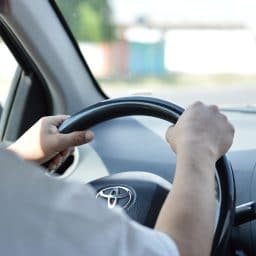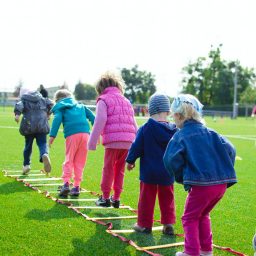How to Make the Most of This Summer with Hearing Aids

Hearing loss is common, affecting approximately 15% of American adults, according to the National Institute on Deafness and Other Communication Disorders. If you have hearing loss and wear hearing aids, we want you to make the most of your summer. We review some tips on how to do this below. Keep Your Devices Dry Despite…
Hearing Loss and Safe Driving

If you have hearing loss you may be missing out on important sounds when you’re driving down Interstate 205. By addressing your hearing health and taking proper precautions, you can help ensure your safety and the safety of others when you’re on the road. Sounds You Might Be Missing If you’re struggling to hear, you…
Should You Wear Your Hearing Aids All the Time?

It is important to wear your hearing aids during your waking hours. Even if you are reading a book, working from home or engaging in another activity where you think you don’t need them, wearing your device consistently delivers the most benefit to your hearing health. Hearing Loss and Your Brain When you have hearing…
Hearing Aids & Babies: The First 6 Months
In 2000, the Early Hearing Detection and Intervention (EHDI) guidelines were created to make sure all children got the help they needed. This program ensures: The Center for Disease Control estimates that with the EHDI program in place, about 98% of all children born in the United States have had their hearing screened. This enables…
Questions to Ask Your Audiologist to Better Understand Your Hearing Loss

If you’ve taken the initiative to get a hearing test, congratulations! You’re one step closer to better hearing. After your hearing test is over, you’ll have the chance to go over the results with your audiologist. It’s important to ask questions so that you understand your hearing loss and your treatment plan. Below we review…
Hear Your Favorite Birds Again with Hearing Aids

What are your favorite sounds to hear? Many would say their loved ones’ voices or the sounds of music. According to an international survey of 1,621 adults conducted by the hearing aid manufacturer Widex, the third most popular sound following voices and music was the sounds of birds. In fact, in the UK, bird song…
Hearing Loss Signs for Musicians

Hearing is essential to being a musician, and yet musicians are often at a greater risk of noise-induced hearing loss. A 2017 study examined 125 musicians with at least five years of professional experience and had them undergo audiometric examinations. Among the study’s findings were that: 19.2% had bilateral hearing loss 51% reported a history…
Tuning in to the Link Between Music and Memory

If you’ve ever listened to an old vinyl that you picked up at Jackpot Records and felt like you were transported back in time to when you first heard those songs, then you know the power that music can have in helping you recall memories. Music Memory Connection A 2016 study examined how music-evoked memories…
How Fluctuating Hearing Loss Can Affect Language Development

Fluctuating hearing loss is defined as a hearing loss that frequently changes. Fluctuating hearing loss may be conductive, caused by a problem with the outer or middle ear that prevents sound from traveling through, or sensorineural, caused by a problem with the sensory hair cells within the inner ear. In this article we review how…
The Heritage of Hearing and How Genetics Play a Part

We’re still learning just how substantial a role genetics plays in so many aspects of our life, especially our health. Genetics can influence our likelihood of being diagnosed with conditions like heart disease, certain cancers, and, as some research indicates, hearing loss. Genetics and Hearing Loss There are a number of rare genetic conditions that…
“Dr. Strand is wonderful. In fact, all the staff are just the best. Personable, and to the point. You will be well cared for at Willamette ENT.”